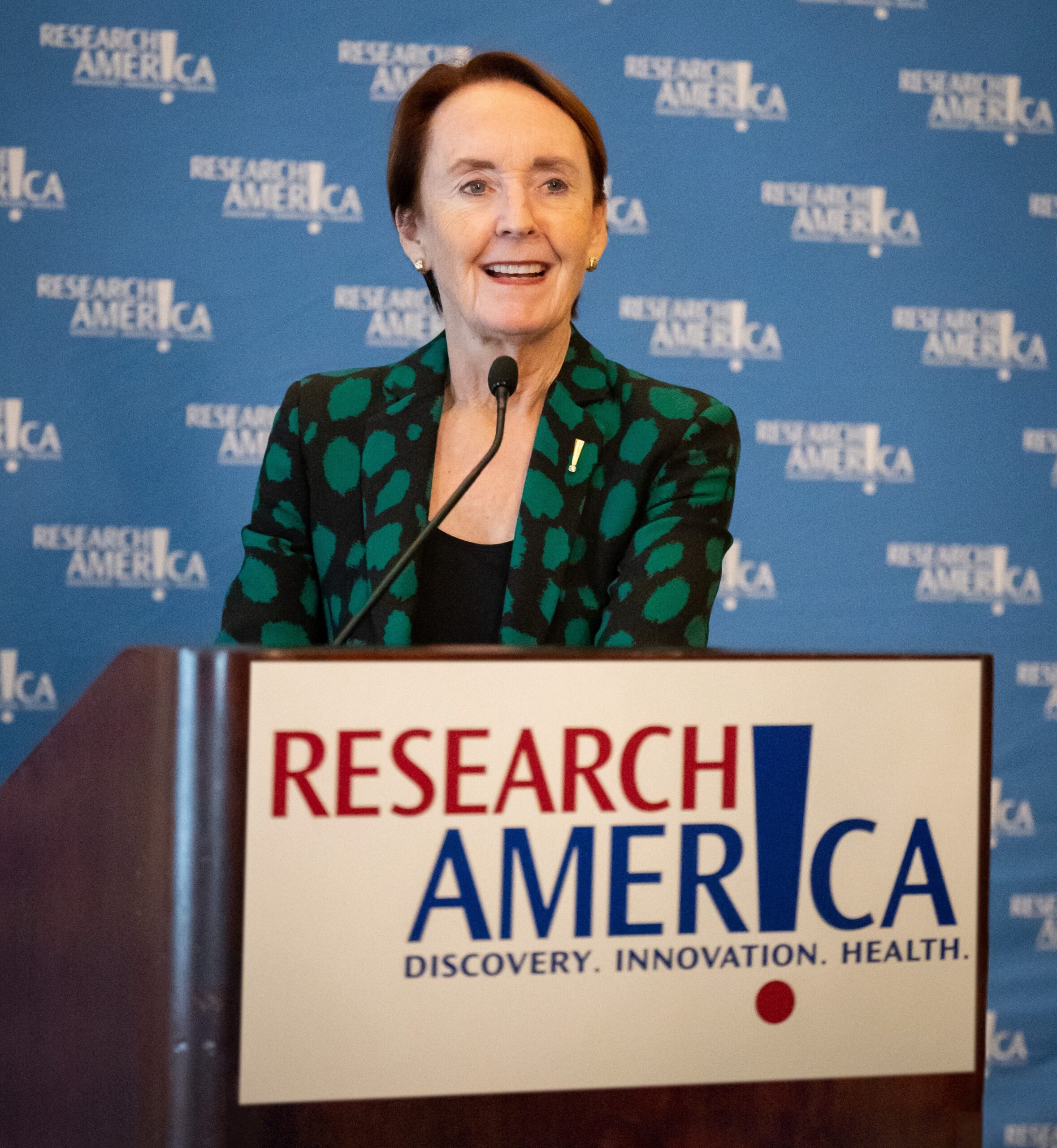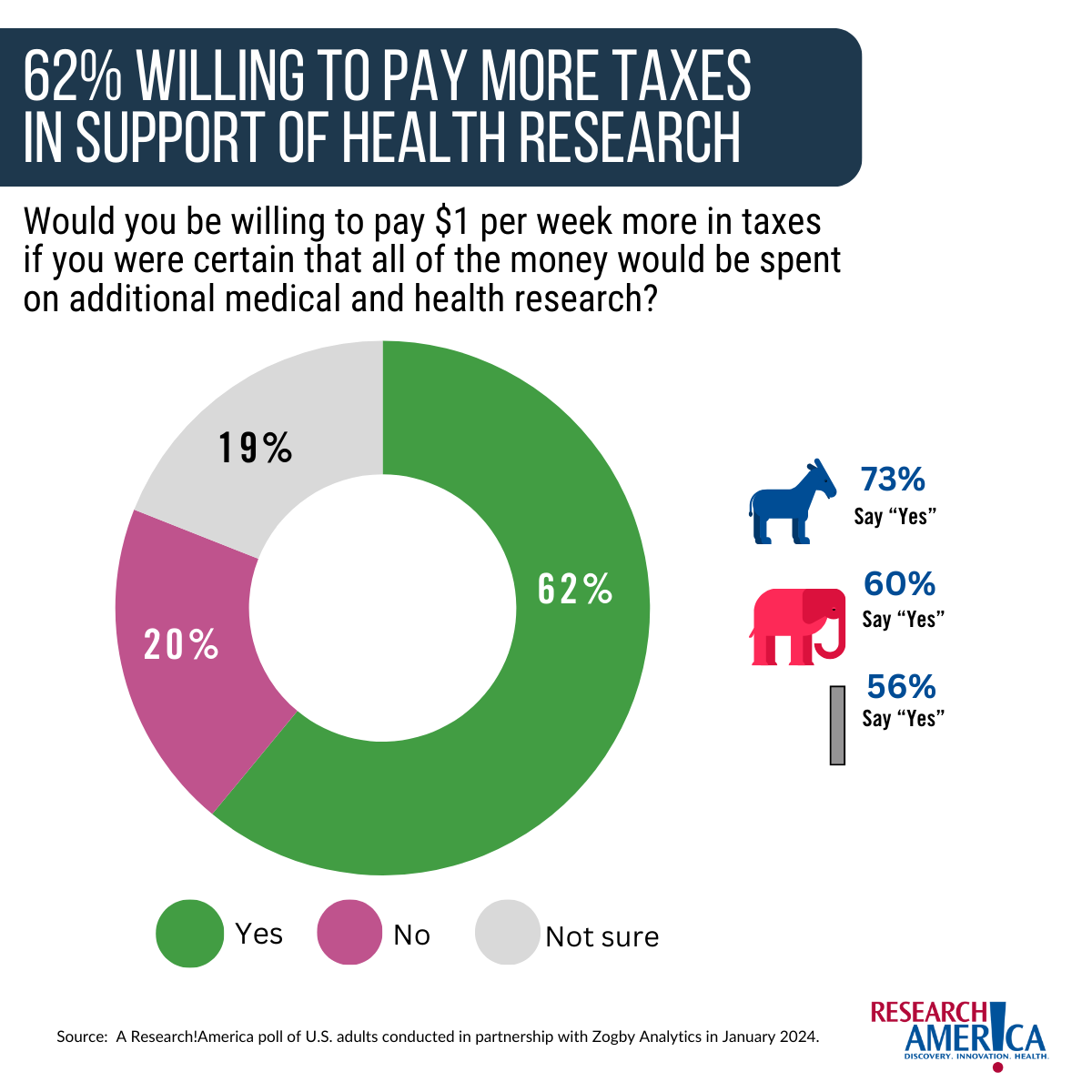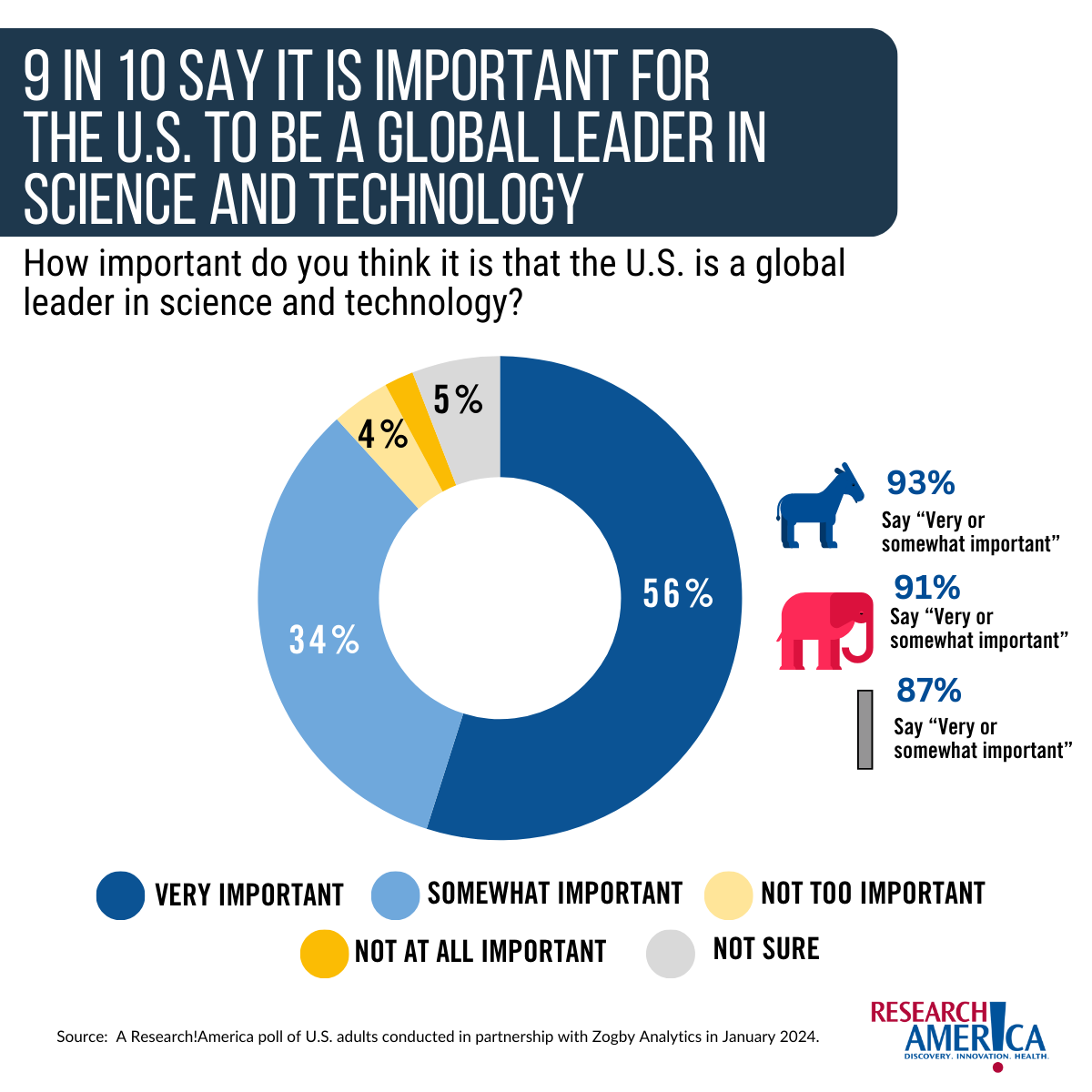Transition

As we knew they would be, the White House and Congress are in transition after an election cycle that was long, grueling, and rife with uncertainty. And as we knew we would be, Research!America is focused on both shorter-term and enduring advocacy priorities as President-elect Trump and his transition team begin identifying the new administration’s top personnel and priorities, and President Biden and the 118th Congress confront a complexity of unfinished business.
Now: advocate for completing the FY25 appropriations process and addressing time-sensitive legislation (e.g., the still-to-be-reauthorized Pandemic and All-Hazards Preparedness Act and Rare Pediatric Disease Priority Review Voucher Program).
The Ad Hoc Group for Medical Research, of which Research!America is a steering committee member, is circulating an organizational sign-on letter making the case for completing the FY25 appropriations process this calendar year and providing NIH with a $1.77 billion increase, consistent with the Senate funding level. Interested organizations from within and outside the Ad Hoc Group are welcome to join this letter by tomorrow, Nov. 8. (See the text here and sign on here).

Always: continuously evolve our advocacy to connect with policymakers on the significance of rapid-pace scientific, medical, and public health progress. (Note that regardless of political affiliation, nearly 60% would spend $1 more in taxes if they knew those dollars were going toward medical and health research.) Defeating deadly and debilitating diseases is a mission that unifies us all.
Post-Election Briefing: We’ll be covering both of these imperatives during our post-election briefing from 11 a.m. to 1 p.m. ET on Nov. 13 at the American Association for the Advancement of Science in Washington, D.C. The event will feature a panel discussion moderated by Laura Barrón-López, White House Correspondent for The PBS News Hour, followed by a networking reception. The event is free, but space is limited so register now.

Another Mission That Unifies Us: 90% of Americans, regardless of political affiliation, believe it is important for the U.S. to be a leader in science and technology.
To achieve that leadership goal, the Vision for American Science and Technology (VAST) team is working to propose elements of a forward-looking vision for a globally competitive 21st century scientific ecosystem to the transition team and the new Congress. It builds on formidable U.S. strengths to ensure the nation realizes our national goals for health, prosperity, and security. See the recent VAST release and an article from Axios.
Mark Your Calendars: A reception hosted by the Science and Technology Action Committee and the National Science Board will feature leaders of the VAST initiative and other science and technology leaders on Wednesday, Dec. 4, in SD-B48 in the Dirksen Senate Office Building from 5:30 to 7:30 p.m. ET. A link for registration will be open next week.
Member-Only Discussion on ARPA-H: Join us on Monday, Nov. 18, at noon ET for the next session in our ARPA-H series, featuring Melissa Antman, Deputy Director of ARPA-H’s Project Accelerator Transition Innovation Office (PATIO). PATIO helps innovators at ARPA-H move their ideas from early-stage breakthroughs to real-world products, guiding them through regulatory approvals, market needs, and customer understanding. Email Jacqueline Lagoy for the registration link to this event.
If your organization is interested in learning more about joining the alliance, check out the “Membership” section of our website and please don’t hesitate to contact Kristen Furlong for more information.
Speaking of… Join ARPA-H virtually on Nov. 13, from 10 a.m. to 4 p.m. ET for an industry day focused on finding and applying for research and development funding. This “Doing Business With ARPA-H” event will offer main sessions on the agency’s mission and business model, along with breakout sessions for in-depth discussions. Participants will have the chance to engage with ARPA-H staff, ask questions, and learn about topics such as teaming opportunities, international collaboration, and transitioning innovations into impactful solutions. Register using the ARPA-H solutions portal here.
Where Does Public Engagement fit in STEMM Training? Join us Nov. 12, from 2 to 3 p.m. ET for a discussion about the evolving landscape of public engagement training for graduate STEMM students. We will be joined by our board member Claire Pomeroy, President, Lasker Foundation, to discuss our newly released recommendations to incorporate public engagement into STEMM training. Panelists Bethann Garramon Merkle, Director, WY Science Communication Initiative, University of Wyoming; Sara Vassmer, Associate Professor, University of Missouri; and Dominique Brossard, Professor and Chair, Department of Life Sciences Communication, University of Wisconsin-Madison will discuss their innovative programs. Register here for the webinar.
NIH Scientific Review Board Will Meet Soon: There is still time to register for the inaugural meeting of the NIH’s recently re-established Scientific Management Review Board. This hybrid meeting is taking place on Nov. 12, from 11:15 a.m. to 5:30 p.m. ET. See the Federal Register notice and register here.
An Under-Recognized Public Health Challenge: Across the nation, an estimated 1.5 million Americans rely on oxygen to manage their health. Join Research!America on Tuesday, Nov. 19, at 1 p.m. ET for a discussion about progress and challenges for individuals who need oxygen because of pulmonary disease. We’ll be speaking with Stephen Mathai, MD, Associate Professor of Medicine at Johns Hopkins University and part of the Johns Hopkins Pulmonary Hypertension Program, and Shavini Fernando, Founder and CEO of OxiWear, who developed a device to monitor oxygen levels after being diagnosed with severe pulmonary hypertension.




